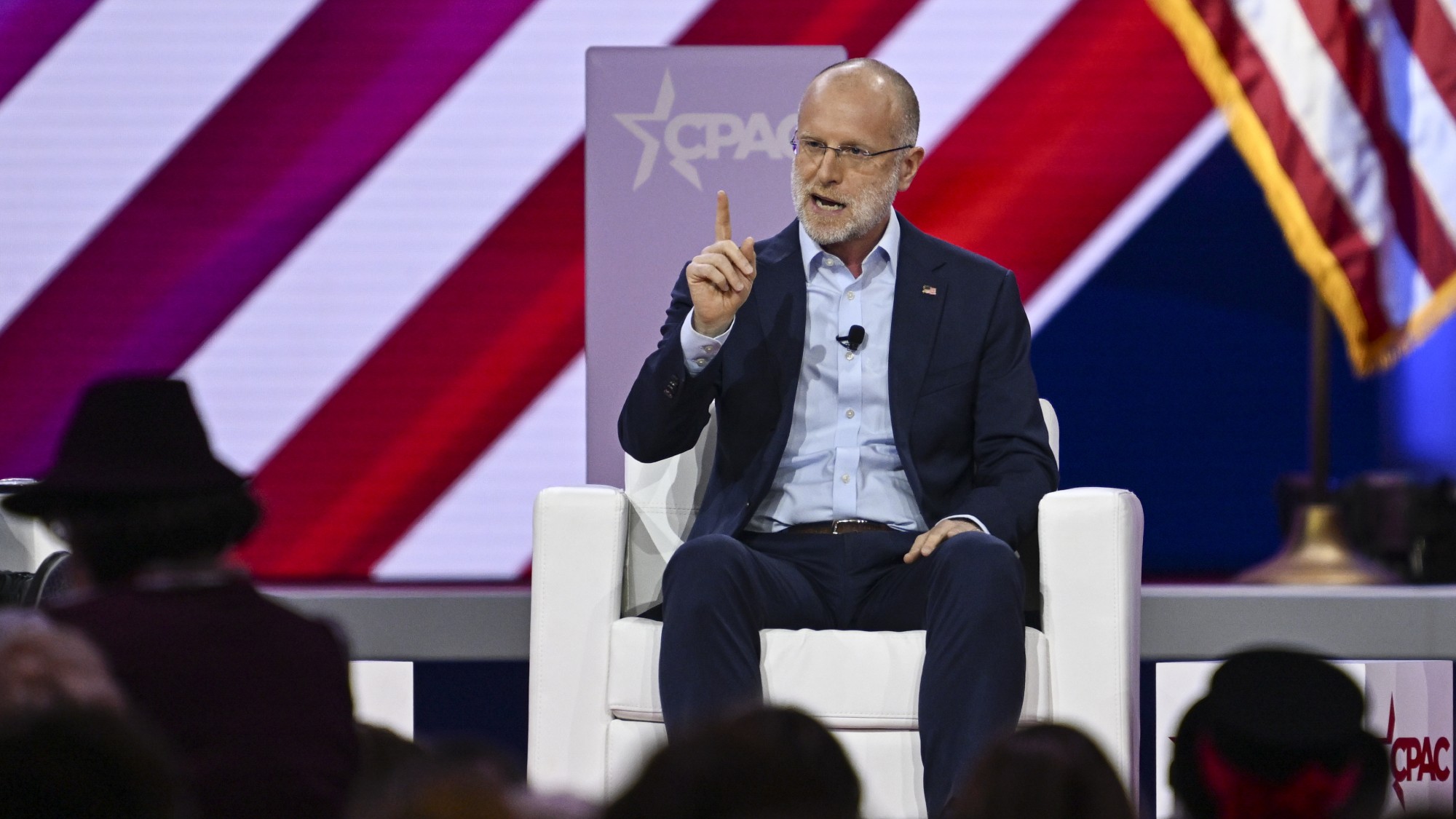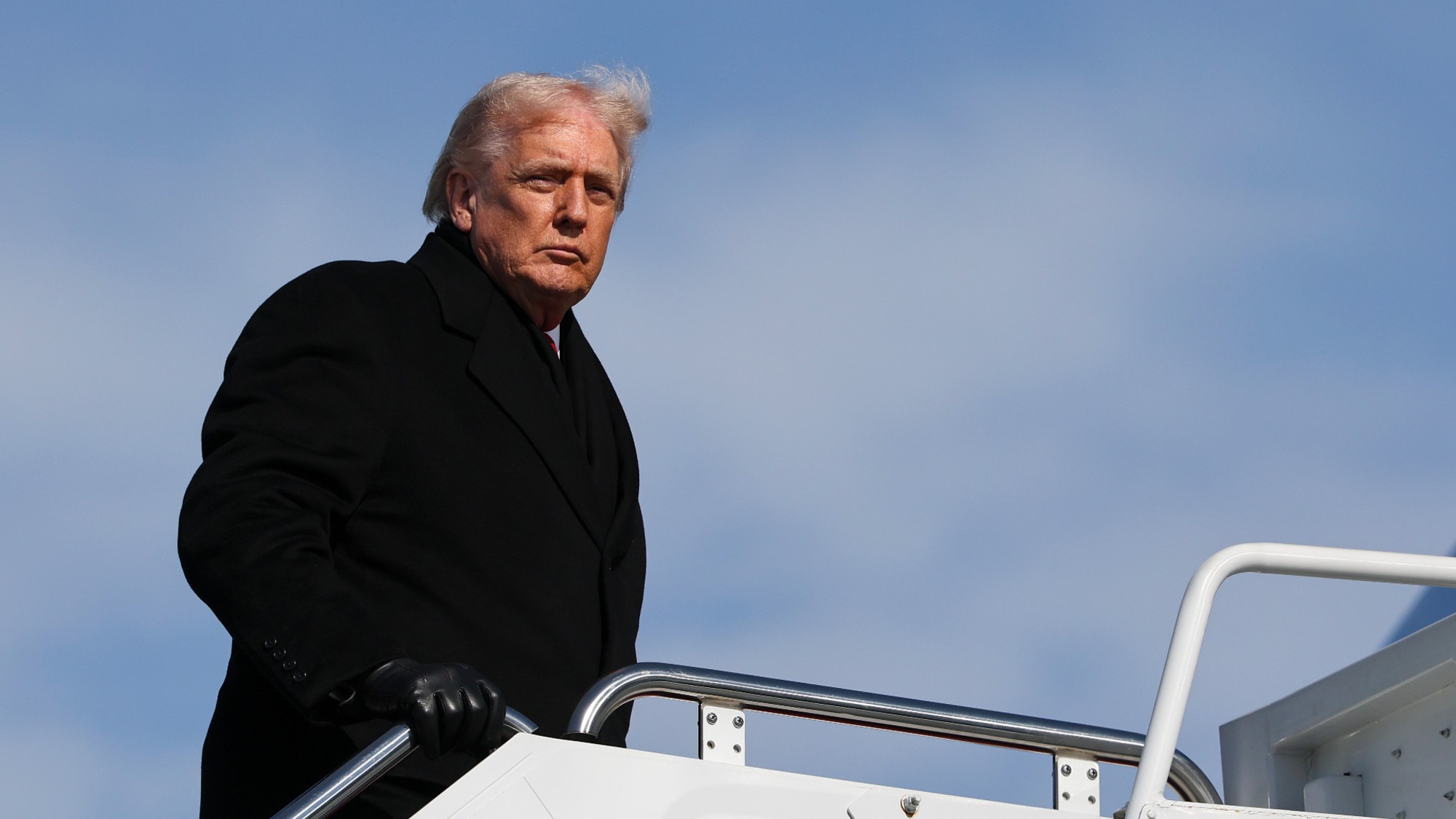Brendan Carr, Trump's FCC pick, takes aim at Big Tech
The next FCC commissioner wants to end content moderation practices on social media sites


On November 17, President-elect Donald Trump nominated Brendan Carr to chair the Federal Communications Commission (FCC), the independent agency that regulates and oversees the nation's communications networks. Carr, who was appointed by Trump as an FCC commissioner in 2017, has been an outspoken critic of content moderation efforts on social media networks like X and Facebook, likening them to censorship regimes, and is expected to target tech giants for regulatory action.
A familiar career trajectory
Carr has spent virtually his entire life in Washington, D.C. Born in the nation's capital, Carr attended Georgetown University, where he graduated with a BA in Government in 2001. He pursued a legal career by enrolling at the Columbus School of Law at the Catholic University of America in D.C. and graduated with a J.D. in 2005. His first job out of law school was at the D.C.-based law firm Wiley Rein, where he specialized in telecommunications law. From 2007 to 2008, he clerked on the Fourth Circuit Court of Appeals before returning to Wiley Rein. Clerks serve in research, advisory and support roles for judges, and federal clerkships are the most prestigious of such posts in the legal world. That's because "from a purely resumé-enhancing perspective, a clerkship also bestows upon a newer attorney a stamp of approval that opens doors to opportunities at prestigious law firms and government agencies and in academia," said the Federal Bar Association in a 2020 blog post.
Trump picked Carr for a five-year term on the FCC in 2017, and because he has already been confirmed by the Senate, he requires no further action to move into the role of chair. President Biden renominated Carr as a commissioner in 2023. If that seems puzzling, it is because no more than three commissioners can be members of the same political party.
The Week
Escape your echo chamber. Get the facts behind the news, plus analysis from multiple perspectives.

Sign up for The Week's Free Newsletters
From our morning news briefing to a weekly Good News Newsletter, get the best of The Week delivered directly to your inbox.
From our morning news briefing to a weekly Good News Newsletter, get the best of The Week delivered directly to your inbox.
Carr's agenda
Carr wrote a chapter of the Heritage Foundation's much-discussed Project 2025 manual called "Mandate For Leadership: The Conservative Promise." In Chapter 28, titled "Federal Communications Commission," Carr recommends that the FCC should take aim at "big tech" and rein in some of its alleged abuses. He also recommends that the FCC stop interpreting Section 230 of the 1996 Communications Decency Act as conferring limitless immunity on media platforms for the content that they carry. Carr additionally believes that companies like Meta are suppressing conservative speech. "We must dismantle the censorship cartel and restore free speech rights for everyday Americans," Carr said in a post on X the day he was nominated to chair the FCC. Not everyone believes that it will be that easy. "I don't believe the FCC has the authority to do this," said Chamber of Progress CEO Adam Kovacevich to Roll Call, referring to Project 2025's Section 230 reforms.
Congress should "empower consumers to choose their own content filters and fact checkers, if any," Carr said in his Project 2025 manual. Carr also thinks that the FCC should ban the social media platform TikTok and expand its "Covered List" of companies that should be prohibited from doing business in the U.S. for national security reasons. In addition, Carr has criticized the Biden administration for rejecting a bid to use federal subsidies to expand broadband access through Trump-aligned billionaire Elon Musk's Starlink platform. Carr applauded Musk's controversial 2022 acquisition of Twitter and is expected to deliver federal grants to the tech mogul. Carr is also planning to change the agency's internal practices. "Starting next year, the FCC will end its promotion of DEI," Carr said in a post on X.
Carr's appointment was met with criticism from the left. "Brendan Carr has been campaigning for this job with promises to do the bidding of Donald Trump and Elon Musk," said Free Press Action co-CEO Craig Aaron to The Washington Post. But his fellow FCC commissioners welcomed the news. "Commissioner Carr is a dedicated public servant and a recognized leader on the many issues before the Commission today," said Democratic Commissioner Geoffrey Starks in a statement. Elon Musk congratulated Carr on X immediately after his appointment was announced.
A free daily email with the biggest news stories of the day – and the best features from TheWeek.com
David Faris is a professor of political science at Roosevelt University and the author of "It's Time to Fight Dirty: How Democrats Can Build a Lasting Majority in American Politics." He's a frequent contributor to Newsweek and Slate, and his work has appeared in The Washington Post, The New Republic and The Nation, among others.
-
 Which way will Trump go on Iran?
Which way will Trump go on Iran?Today’s Big Question Diplomatic talks set to be held in Turkey on Friday, but failure to reach an agreement could have ‘terrible’ global ramifications
-
 High Court action over Cape Verde tourist deaths
High Court action over Cape Verde tourist deathsThe Explainer Holidaymakers sue TUI after gastric illness outbreaks linked to six British deaths
-
 The battle over the Irish language in Northern Ireland
The battle over the Irish language in Northern IrelandUnder the Radar Popularity is soaring across Northern Ireland, but dual-language sign policies agitate division as unionists accuse nationalists of cultural erosion
-
 Gavin Newsom and Dr. Oz feud over fraud allegations
Gavin Newsom and Dr. Oz feud over fraud allegationsIn the Spotlight Newsom called Oz’s behavior ‘baseless and racist’
-
 Greenland: The lasting damage of Trump’s tantrum
Greenland: The lasting damage of Trump’s tantrumFeature His desire for Greenland has seemingly faded away
-
 The price of forgiveness
The price of forgivenessFeature Trump’s unprecedented use of pardons has turned clemency into a big business.
-
 Will Peter Mandelson and Andrew testify to US Congress?
Will Peter Mandelson and Andrew testify to US Congress?Today's Big Question Could political pressure overcome legal obstacles and force either man to give evidence over their relationship with Jeffrey Epstein?
-
 The ‘mad king’: has Trump finally lost it?
The ‘mad king’: has Trump finally lost it?Talking Point Rambling speeches, wind turbine obsession, and an ‘unhinged’ letter to Norway’s prime minister have caused concern whether the rest of his term is ‘sustainable’
-
 A running list of everything Donald Trump’s administration, including the president, has said about his health
A running list of everything Donald Trump’s administration, including the president, has said about his healthIn Depth Some in the White House have claimed Trump has near-superhuman abilities
-
 Trump sues IRS for $10B over tax record leaks
Trump sues IRS for $10B over tax record leaksSpeed Read The president is claiming ‘reputational and financial harm’ from leaks of his tax information between 2018 and 2020
-
 ‘Implementing strengthened provisions help advance aviation safety’
‘Implementing strengthened provisions help advance aviation safety’Instant Opinion Opinion, comment and editorials of the day
